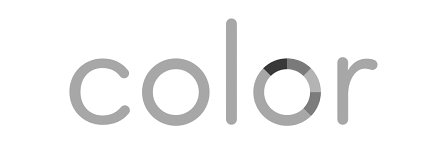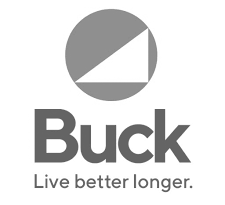Author and Wharton professor Adam Grant says we all have periods of both productivity and procrastination. He proposes that by slowing down we allow ourselves to recover physically, mentally, and emotionally so we can be at our peak during our next period of productivity. And if we defy this natural process? Our motivation will wane and our productivity will decline.
If this sounds familiar, you’re not alone. Let’s take a look at a longer-term approach that will take advantage of our recovery times so we can be our best during our productive periods. Perhaps most importantly, this approach supports not only your work, but also your health and well-being.
How to manage your energy
In his research, Tom Rath, author of ‘Eat Move Sleep’ found that when energy levels are high, we’re up to 3x more likely to be engaged in our work and to have the drive and focus to get tasks done. High energy is directly tied with healthy habits – eating well, getting good sleep, and regular exercise. Read my post The importance of taking a walk for helpful tips and surprising facts on why getting moving is so good for us.
How to manage your focus
When we manage focus, we tune out all distractions and give our full attention to the work at hand. This means turning off phones, logging out of email, and silencing notifications so that our minds are not struggling to toggle multiple tasks at the same time. If you haven’t explored mindfulness, now may be the time to consider this helpful tool. With just 10-minutes of mindfulness meditation daily, you can train your brain to focus and resist the urge to wander. Scott Shute, LinkedIn’s Head of Mindfulness and Compassion, says that having this type of practice also helps us reduce the effects of stress and supports us to build better relationships. His LinkedIn Learning course shares strategies that can be incorporated into your weekly routine to help settle body and mind. Another resource is the Insight Timer app with a free library of more than 80K guided meditations.
OK, now you’re ready to manage your time
Once you’ve successfully managed both energy and focus, the next step is determining your highest priority tasks. Here are two useful tools:
• Use the Chunking Technique By breaking up your day into larger chunks instead of reacting to constant interruptions, you can devote time to specific tasks, have fewer start- up moments, and your efficiency will improve immensely.
• Create a new type of To Do List Consider your daily intention before each day begins. How do you want to feel at the end of your day? Peace of Mind? Accomplished? Energized? Even if certain tasks aren’t finalized, you can achieve this intention. Having positive reinforcement means your To Do List supports you vs. a list that feels never-ending. Another idea is to add an area where you can move tasks to do later. This way you don’t have to see these all day long, you can breathe easier, and you’ll be confident these to do’s won’t be forgotten. However, you may find that these tasks that keep being pushed out to be done later are either done by others or not that important to you after all and off your list entirely.
As we support ourselves to be more constructive, perhaps most important to remember is that our productivity is closely tied to being aware and connected to our purpose. As author Simon Sinek says in his book ‘Start with Why,’ “Working hard for something we don’t care about is called stress: Working hard for something we love is called passion.” May your ‘Why’ inspire you as you work smarter, not harder.
Further Reading
The Power of Full Engagement: Managing Energy, Not Time, Is the Key to High Performance and Personal
Renewal – Jim Loehr and Tony Schwartz
Think Again: The Power of Knowing What You Don’t Know – Adam Grant
Letting Ourselves Off the Hook (video) – Simon Sinek
“I truly do feel that my coaching sessions with Debra allowed me to evolve both as a manager and as a person. She took both inward and outward-looking approaches; assigned self-reflective exercises to define my core values and an outward focus on techniques to build relationships with my team, ensuring I create an environment of support and trust for them.”
— Melissa Carmichael, former Product Design Manager at SurveyMonkey
“The great value in Debra’s coaching lies in her highly personalized suggestions. There are many principles in good management, but which ones are most applicable to you? Debra’s style felt more akin to “massaging” the issue with me until the concepts fell clearly into place. This made me feel greater ownership over the solutions and made me confident that she was always addressing what was most important to me.”
— David Lee, Ph.D., Head of Assay Development at Color
“I have recently been promoted to a managerial role. As I navigate in this unknown territory I am very appreciative of the great insights, guidance, help, support, feedback, and encouragement I receive from my coach Debra. She is a great listener and she selflessly invests in my development and growth. She shares resources with me to help me brainstorm, learn and practice new skills. I always walk away feeling encouraged and positive. I feel blessed to have this opportunity and to have been paired up with such an amazing coach and mentor.“
— Aleksandra Doeing, Senior Manager at Capital One
“I value Debra for her insight into difficult situations. She is amazing at actively listening and teasing out an actionable plan. She has also helped me craft team building activities for an amazing offsite that helped bring my team closer.”
— Xin Yang, Engineering Manager Fleet Firmware, Samsara
“Debra’s coaching skills are profoundly effective. She asks the challenging questions and helped me to find the solutions that worked for me. Her approach is both persistent and graceful and she knows just when to challenge and when to encourage with her positivity. The coaching with Debra has been a valuable investment in improving the way I work and the final results.”
— Nina Mullen, Founder and Landscape Designer, Mullen Designs
“Debra is an excellent coach. She came at the right moment and with the right approach. Her capacity as a listener and her very precise feedback when asked, allowed me to find clarity in a very delicate moment.“
— Alejandro Pacheco, UN Development Programme








